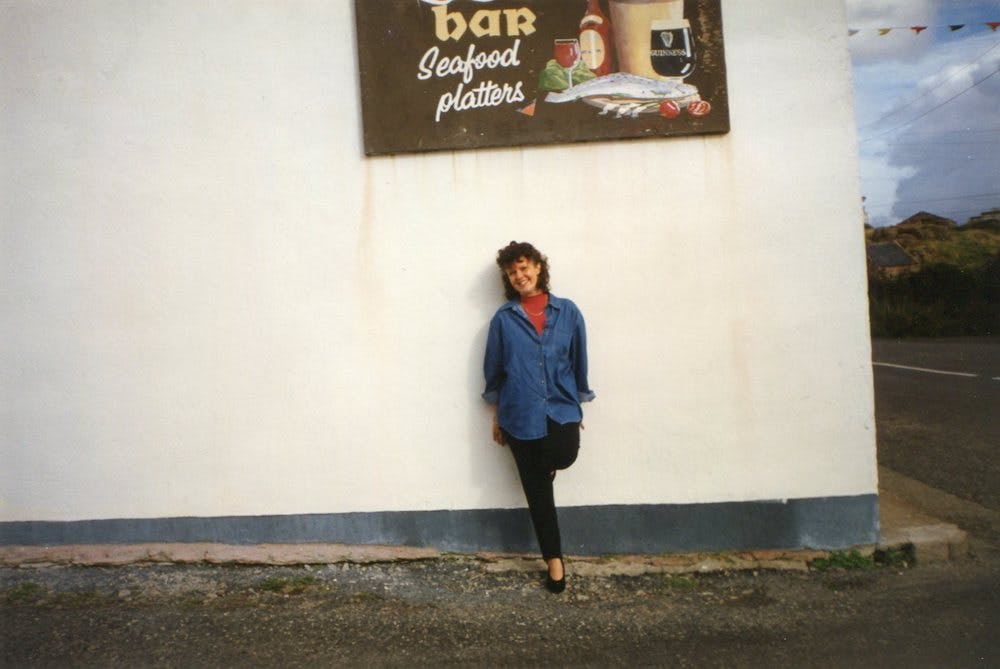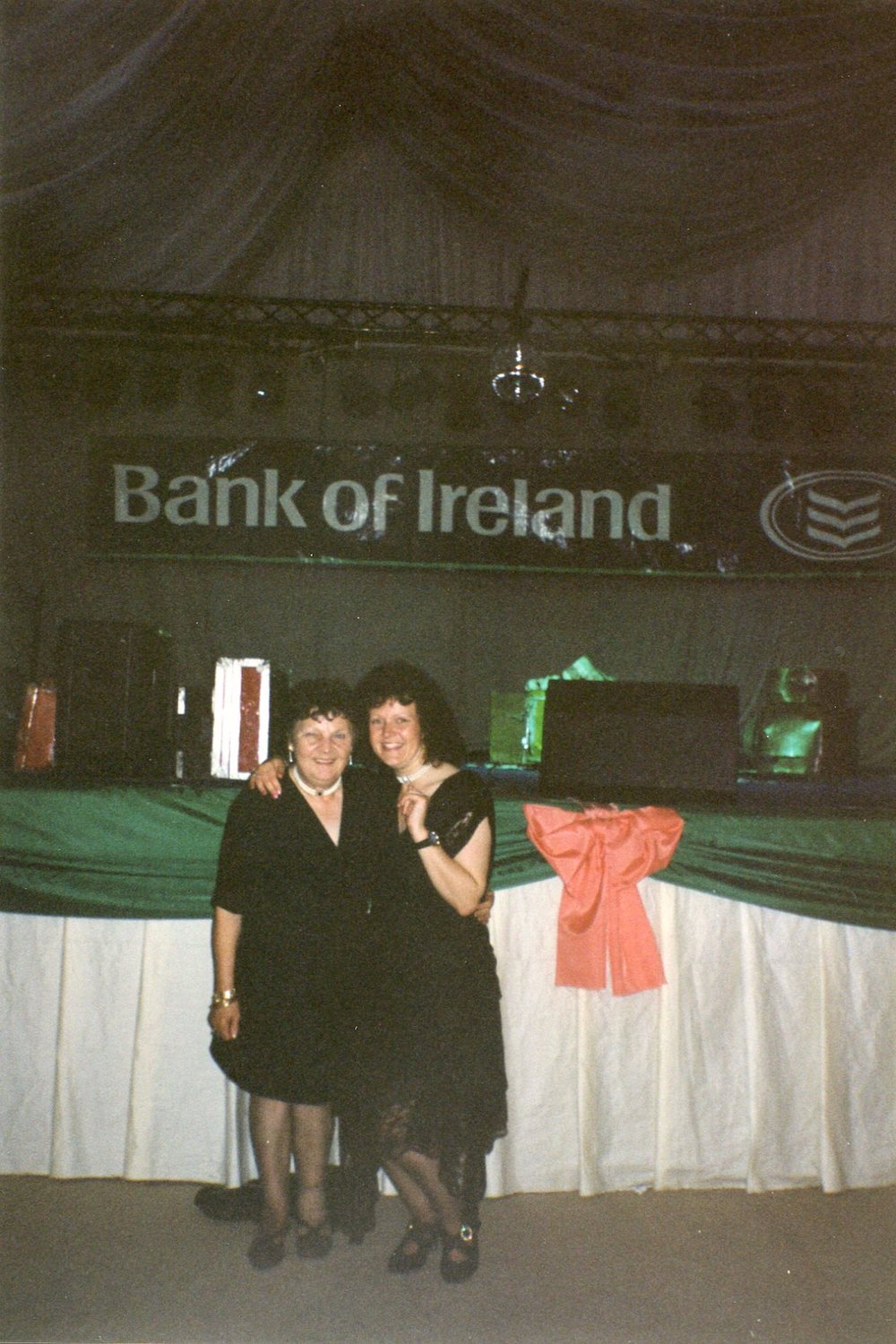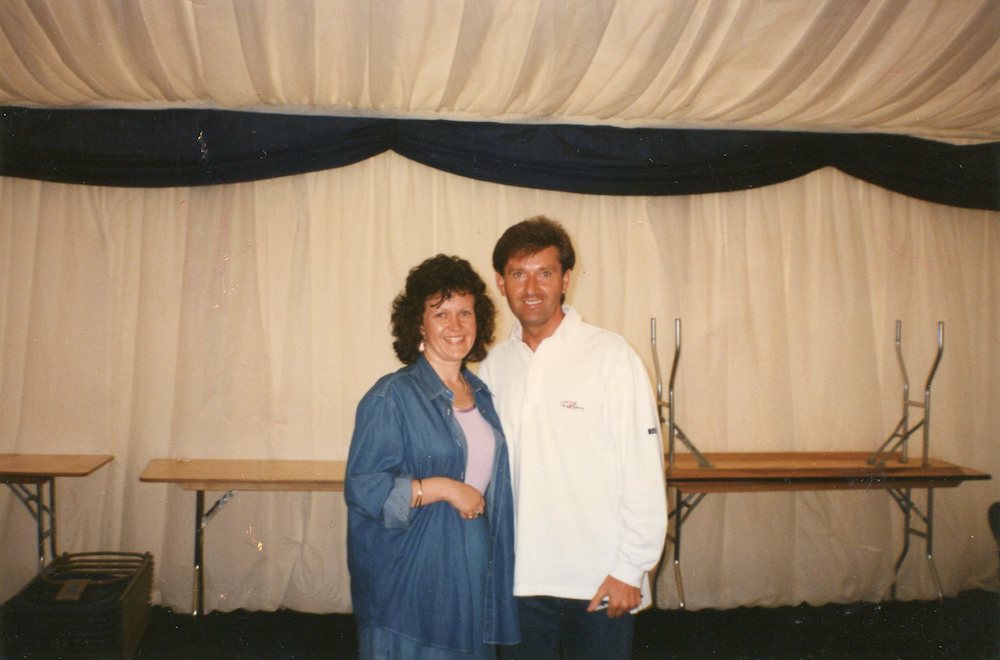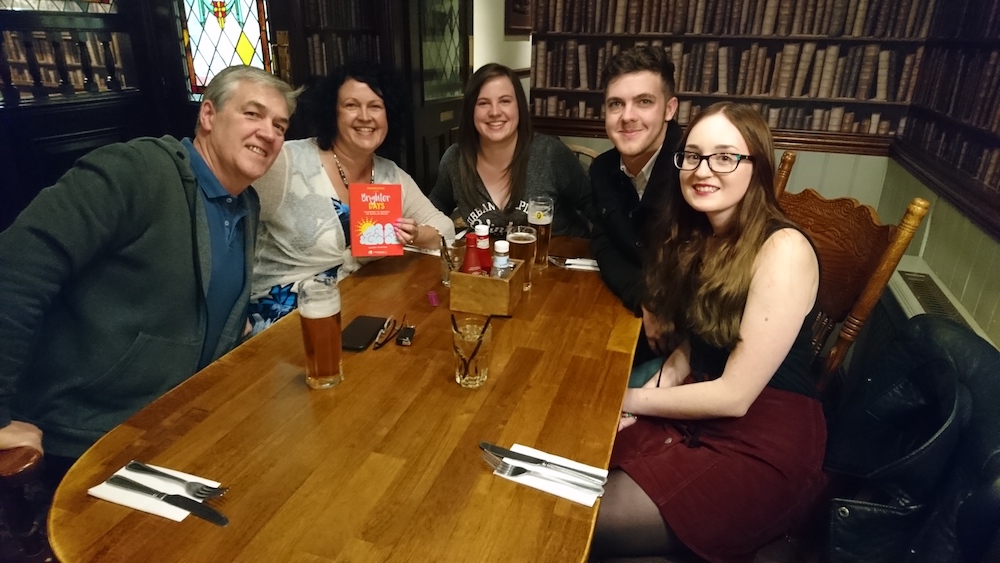
Karen Manton was hospitalised every two years as she battled with her undiagnosed bipolar disorder, even becoming stranded in Wales after a manic episode in which she ran away to Ireland in search of singer Daniel O’Donnell. But years later, when she finally received her diagnosis, it wasn’t a negative thing. Instead, it was a revelation, and Karen felt she was equipped to successfully manage her illness
As the train clattered through the tunnels, I could hear voices pounding in my ears. I was convinced that everyone was talking about me. I could hear: “That poor girl, she is so unwell.” Of course these people did not even know me; this was the paranoia of my illness.
It was 1996, and I was travelling around Wales, completely lost. I had been discharged from a mental hospital, and left to board the wrong train in Llandudno as I attempted to make my way home alone.

Karen and her mum at a ball Daniel O'Donnell held in his hometown of Kinclassagh in 1997
I had recently become very unwell with my bipolar disorder – though undiagnosed at the time. It had been the usual signs, with a lack of sleep, and racing thoughts followed by the devastating delusions. My illness always followed the same pattern, but of course I was unaware that I had bipolar then.
I had always been told that I was suffering from anxiety and depression. When I was 17, and had only been in my first full-time job a matter of weeks, I was in a very destructive relationship. The pressure of this caused me to lose sleep, and it was only a matter of time before my insomnia resulted in me becoming deluded. After a visit to the GP and a course of antidepressants, I eventually recovered.
It was six years later, in 1992, that I had my next episode. Exactly nine months after I’d had a termination due to my ill-health, I had a phantom pregnancy. This caused me to be admitted to the mental hospital – the first time that I was to be sectioned, experiencing delusions and the belief that I was Jesus reincarnated. I thought that I was immortal and that I would never die, which was a very frightening place to be.
It became a pattern that whenever something out of the ordinary happened in my life, my reaction was often to have a manic episode followed by a period of depression. On this occasion where I was lost in Wales, the catalyst had been my dad’s throat cancer diagnosis.
Life with my dad had been far from easy. Throughout my childhood, while my dad was a hard worker, he also enjoyed a few drinks. This resulted in domestic violence towards my Mam. However, as the years went by dad and I became extremely close, sharing a passion for music, and in particular Daniel O’Donnell. We would watch his videos and sing along to his music together, and longed to see the beautiful views of Ireland.
For me, that day was to come sooner than planned. As I was entering my manic episode in 1996, I became obsessed with Daniel, his music and Ireland. I demanded that my then husband took me there, and the only reason he consented was that he was afraid of what I might do.
However, on arriving at Holyhead we argued more, and he felt he had to take our two small children home. He was beside himself with worry, but I was adamant I was going to Ireland. I was so unwell that I thought he had boarded the ferry in the car, so off to Ireland I went, only to spend the day with the An Garda Síochána (Irish police) as I had no money, and no belongings. They looked after me, and returned me to Holyhead where I was met by the police and placed in a mental hospital in Wales, in the hope that I would become well enough to return home.

Karen meeting Daniel O'Donnell in 1997
After a few days though, they discharged me, and I was dropped at the train station in Llandudno. Alone, I found myself boarding the wrong train and ending up in Blaenau Ffestiniog, thinking I was back in my home town of Middlesbrough. Fortunately, a lovely lady found me and led me to a drop-in centre. I received help and was put back on a train to meet my family, under the watchful eye of the guard.
On returning home, I was soon admitted to our local mental hospital. As much as I needed to be there, it was never a pleasant experience; being detained under the Mental Health Act was always very frightening.
After I was first sectioned in 1992, I went on to suffer further episodes in 1994, 1996, 1998, 2000 and 2002. In all this time I was never told what was wrong with me. I decided enough was enough and it was about time I was given a diagnosis. I needed to know why I was becoming ill every two years and had no quality of life.
In 2002, I went into the ward armed with a list of questions, and was relieved to find that my new consultant was more than willing to listen. He had clearly already been studying my case, and said: “Karen, from what you’ve told me, I believe that you have bipolar disorder.”
To hear those words did not upset me, in fact I felt a wave of relief. Now I knew that I had a mental illness, I could do something about it.
My consultant found medication to keep me calm, and explained how important it was that I remain on it. In the past, with permission, I stopped taking medication when I was well. However, I was now prepared to do anything to remain stable.
And so here we are in 2018, and I haven’t been hospitalised since 2002. I have the confidence now to say that I know I never will be again. I remain on my medication, and see my consultant every three to four months; it’s reassuring to know that if I need him in an emergency I am still in the system.
Karen celebrating her book launch, with her husband Paul, daughter Bernadette, son Peter and his fiancée Becky
Continuing my medication has been the secret to remaining well for me, however, I am now very self-aware too and can sense if things are not quite right. I know my triggers and do my best to avoid them. I also embarked on 22 weeks of cognitive analytical therapy a few years ago to help me move on from the past. Since then, I have remarried and have a very supportive husband and family. My children are now adults and offer great support.
I participate in exercise classes every week where I get to socialise, I go walking with my gorgeous cockapoo Bonnie, and have regular catch-ups with my lovely friends.
Bipolar disorder no longer controls me, I control it. When you learn how to manage your illness, you can make changes and live a fulfilling life.
Karen has written a book about her life and her experiences to help and inspire others who struggle with bipolar disorder: ‘Searching For Brighter Days; Learning to Manage My Bipolar Brain’, published by Trigger Press.
Karen suffered for a long time without knowing why, and the uncertainty around the serious symptoms must have been difficult. Her narrative shows the power of being understood, because her diagnosis really helped with that. I’m glad Karen has found a supportive consultant who can be part of her wider support network. She is clearly taking good care of herself, doing things she knows helps both in the good times and when she is more stressed, which is key to managing symptoms of mental illness.

Join 100,000+ subscribers
Stay in the loop with everything Happiful

